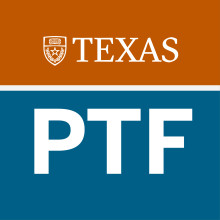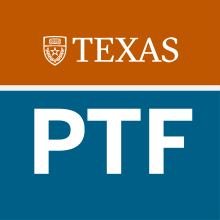Individual Fellow Initiatives

Artful Learning: Integrating Art into Teaching Practice
This project aims to transform academic instruction by integrating art into the classroom. We believe that art can make subjects more engaging and help students connect with the material on a deeper level. By integrating diverse forms of art—such as virtual art, music, film, theater, and more—into the curriculum, we aim to create a more interactive and stimulating learning environment while also supporting students' mental health through therapeutic art sessions.

Compassionate Pedagogy and Experiential Learning
The primary goal of this project is to enhance student engagement and participation in the learning environment, especially those who have may have been marginalized by conventional approaches to teaching. This project aims to support, encourage, and train faculty to incorporate compassionate pedagogy (CP) and experiential learning (EL) into their teaching, with the goal of promoting student connection and faculty creativity.

Teaching Engineering through Murder Mysteries and Personalized AI Tutor
CE 357: Introduction to Geotechnical Engineering is a third year required undergraduate course that has traditionally been a challenging course for students due to its abstract nature. The average course rating for CE 357 is 3.8 in the last twenty years. I have successfully transformed the lecture modules to achieve a significant increase in interest and students’ performance in the course. Although preliminary work looks promising, I want to scientifically evaluate the effectiveness of the course and publish the findings.

Collaborative Effort–Teaching General Physics
I have been teaching general physics for non-Physics majors since 2008. I have implemented interactive learning elements into my lecture and “real life” questions, which allows the students to have short (3-4 minutes) discussion in small groups to find solutions for the given questions. I have seen improvement in student engagement and finally in test scores, especially within the semester as the students embrace this style of teaching. However, in order to really affect improvement, I communicate with other physics faculty to reflect on the evaluation of successful teaching.

Measuring the Effectiveness of Active Learning Methods in Cell Biology
Despite ample evidence that implementing active learning methods in the classroom leads to better outcomes, most courses in Biology continue the use of traditional lecturing. Anecdotal conversations with many of my colleagues who teach upper division biology courses indicate a widespread perception that the traditional lecture is the most effective way to transmit information to students.

Transforming a Class Without Backflipping and Handstands
This PTF project was designed to transform a basic science course from lecturing to active learning in a semi-flipped classroom model and to develop a “toolbox” to help facilitate similar transformations across campus. The flipped classroom model has proven effective in motivating and engaging students and improving their retention of materials learned. However, there were two common myths about applying flipped classroom models in large classes (e.g.

Nutrition in the Kitchen
Compounding the challenge of consuming a healthy diet is the fact that many students have little or no familiarity with preparing their own food. The result is inadequate diets that do not support optimal health and academic performance.

Peer Learning Assistant Program Guidelines and Curricula
The Peer Learning Assistant Program within the Department of Chemistry is a program developed with resources from the Provost Teaching Fellows program to enhance the educational experience of students taking general chemistry by training and employing Peer Learning Assistants (PLAs) to service large blended general chemistry courses. The large (300 –500 students) blended courses have replaced the straight lecture model with active, student centered, learning. Active learning requires coaching and in a large class it is impossible to implement with only one instructor and one tea

Transforming the Classroom: Engaging Faculty Step-by-Step
Often when faculty express an interest in exploring and adopting new teaching, they ask: Where should I begin? What should I do? How will it help? If an instructor will take even a small step, the next may be easier. Education specialists advise us to create multiple, low-risk settings that encourage students to try new ideas and test new skills. It would seem that the same advice applies to developing one’s own teaching practice and in encouraging useful change among colleagues.

